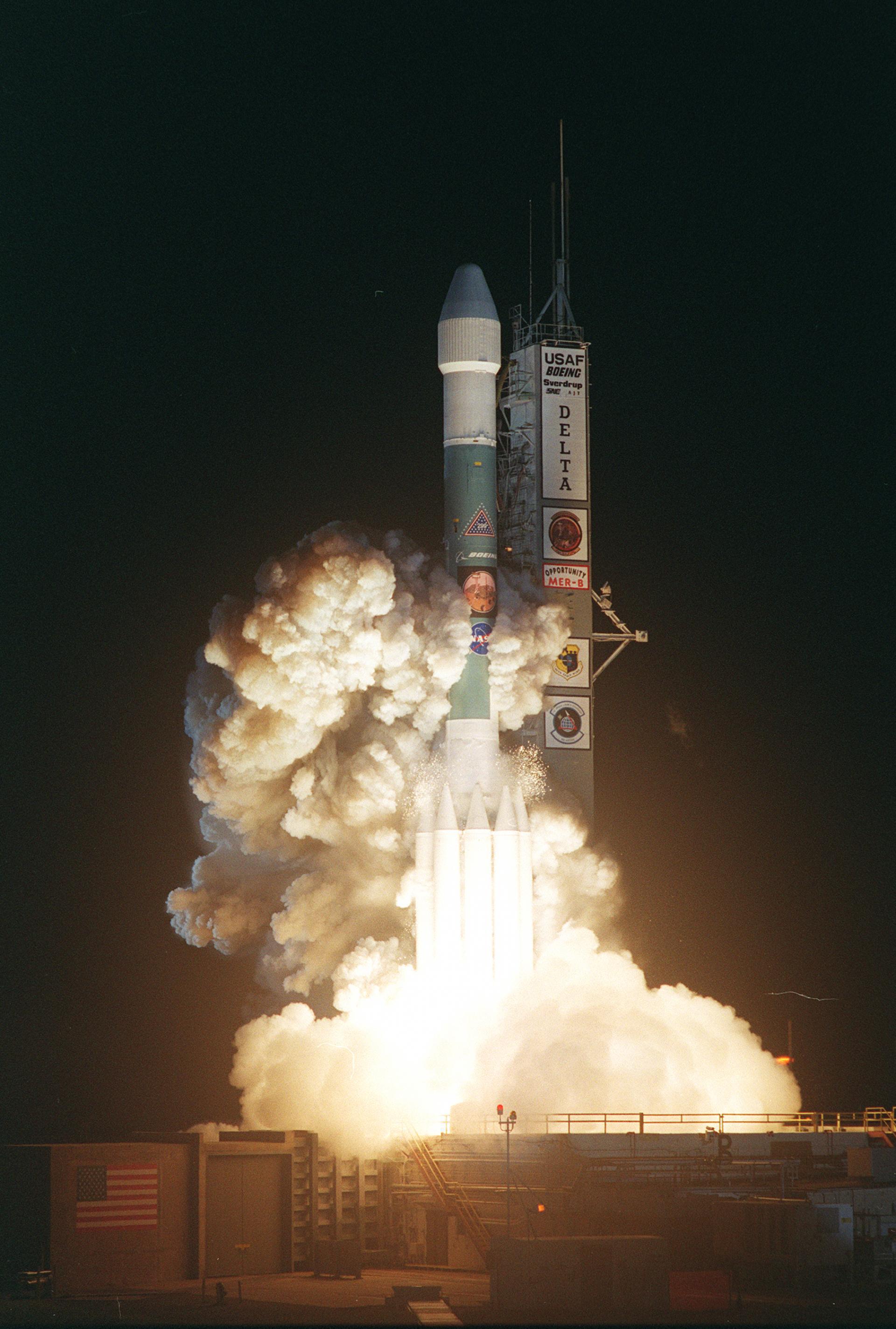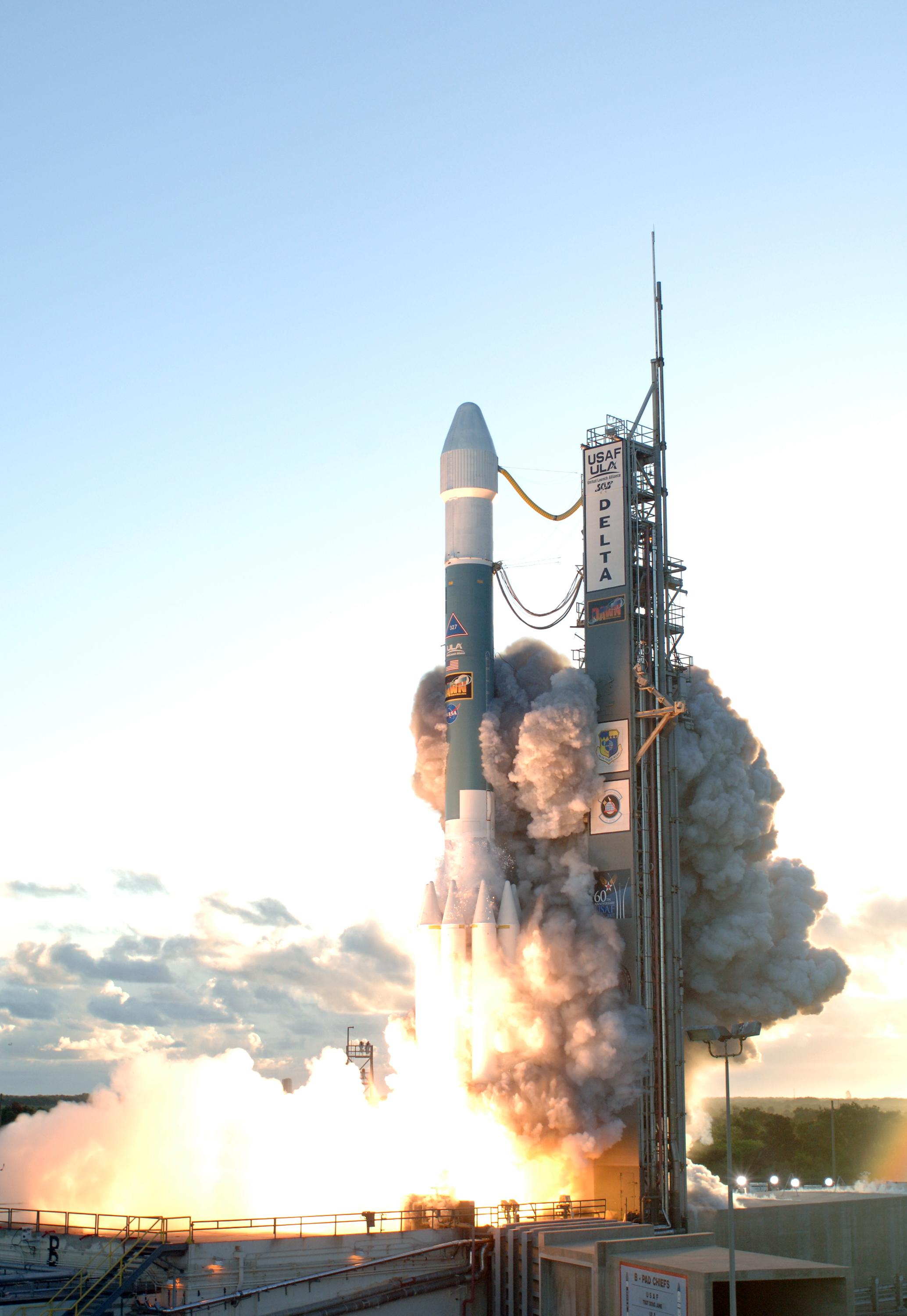
Delta II
In-activeUnited Launch Alliance (ULA)
July 8, 2003
Description
Delta II is an American space launch system developed by McDonnell Douglas, now part of the Delta rocket family operated by United Launch Alliance. With more than 150 missions and a nearly perfect track record, Delta II has established itself as one of the most successful orbital launch systems.
Specifications
-
Stages
3 -
Length
38.9 m -
Diameter
2.4 m -
Fairing Diameter
3.0 m -
Launch Mass
286.0 T -
Thrust
―
Family
-
Name
Delta II -
Family
― -
Variant
7925H-9.5 -
Alias
― -
Full Name
Delta II 7925H-9.5
Payload Capacity
-
Launch Cost
$51000000 -
Low Earth Orbit
― -
Geostationary Transfer
Orbit
2190.0 kg -
Direct Geostationary
― -
Sun-Synchronous Capacity
―
United Launch Alliance
Commercial
Interim CEO: John Elbon
ULA 2006United Launch Alliance (ULA) is a joint venture of Lockheed Martin Space Systems and Boeing Defense, Space & Security. ULA was formed in December 2006 by combining the teams at these companies which provide spacecraft launch services to the government of the United States. ULA launches from both coasts of the US. They launch their Atlas V vehicle from LC-41 in Cape Canaveral and LC-3E at Vandeberg. Their Delta IV launches from LC-37 at Cape Canaveral and LC-6 at Vandenberg.
Delta II 7925H-9.5 | Dawn
United Launch Alliance | United States of AmericaCape Canaveral SFS, FL, USA
Sept. 27, 2007, 11:34 a.m.
Delta II | Messenger
United Launch Alliance | United States of AmericaCape Canaveral SFS, FL, USA
Aug. 3, 2004, 6:15 a.m.
Status: Launch Successful
Mission:
MESSENGER was a NASA robotic space probe that orbited the planet Mercury between 2011 and 2015, studying Mercury's chemical composition, geology, and magnetic field. The name is a backronym for "MErcury Surface, Space ENvironment, GEochemistry, and Ranging", and a reference to the messenger god Mercury from Roman mythology.
Low Earth OrbitDelta II | Opportunity Rover
United Launch Alliance | United States of AmericaCape Canaveral SFS, FL, USA
July 8, 2003, 3:18 a.m.
Status: Launch Successful
Mission:
Opportunity, also known as MER-B or MER-1, and nicknamed "Oppy", is a robotic rover that was active on Mars from 2004 until the middle of 2018. Opportunity was able to stay operational for 5111 sols after landing, maintaining its power and key systems through continual recharging of its batteries using solar power, and hibernating during events such as dust storms to save power. Due to the planetary 2018 dust storm on Mars, Opportunity ceased communications on June 10 and entered hibernation on June 12, 2018. It was hoped it would reboot once the weather cleared, but it did not, suggesting either a catastrophic failure or that a layer of dust had covered its solar panels.
Heliocentric N/AFalcon 9
Starlink Group 6-88
Space Launch Complex 40 - Cape Canaveral SFS, FL, USAA batch of 29 satellites for the Starlink mega-constellation - SpaceX's project for space-based Internet communication system.
Falcon 9
CSG-3
Space Launch Complex 4E - Vandenberg SFB, CA, USACSG-3 is an Earth observation satellite for the Italian Space Agency, part of a reconnaissance constellation using synthetic aperture radars operatin…
Long March 7A
Shijian 29 A-B
201 - Wenchang Space Launch Site, People's Republic of China2 satellites officially described as for "demonstration of new technologies for spatial targets detection" purposes.
Long March 4B
Tianhui 7
Launch Area 94 (SLS-2 / 603) - Jiuquan Satellite Launch Center, People's Republic of ChinaA satellite officially described as for cartography purposes, details TBD.
Soyuz 2.1b/Fregat-M
AIST-2T 01 & 02
Cosmodrome Site 1S - Vostochny Cosmodrome, Siberia, Russian FederationA pair of Russian optical Earth observation satellites built by the Progress Rocket Space Centre for obtaining stereo images of the Earth's surface, …


